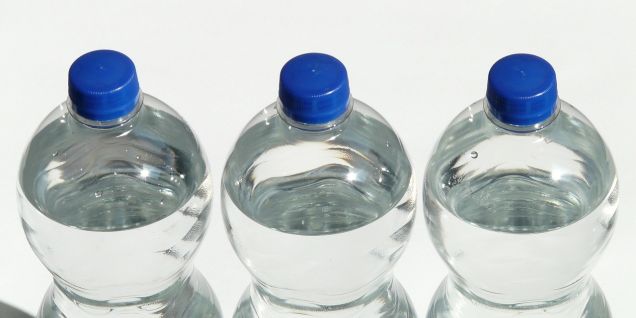Salicylic Acid: How Does It Work?

As a chemical exfoliant, salicylic acid is used in spot treatments and is one of the most common ingredients in spot treatments. It's a beta hydroxy acid (BHA) that removes dead skin cells from the surface of the skin and pores, leaving your complexion smoother and clearer.
Salicylic acid works best on oily or combination skin types but can be used on all skin types. It's also suitable for sensitive skin, as it has anti-inflammatory properties.
Salicylic acid has three main actions:
Salicylic acid is available in many forms, including face washes, masks, and creams. However, it's most commonly used in topical treatments such as pads or gels that you apply directly to blemishes. These treatments contain ingredients like alcohol to help them penetrate deep into clogged pores to reduce spots and prevent new ones from forming.
Salicylic acid works as an exfoliant by loosening up the dead skin cells on top of your skin. These dead cells can clog pores and cause pimples and blackheads. By removing them from the surface of your skin, salicylic acid reduces inflammation and unblocks pores so they don't become clogged with oil or bacteria.
It also helps treat dry skin by increasing the moisture content within your skin cells so they're softer to the touch and more elastic — this means fewer wrinkles too!
As with all chemical exfoliants, salicylic acid works by removing dead skin cells from the surface of the skin. This helps unclog pores, which in turn reduces blackheads and whiteheads. Salicylic acid also helps prevent new blemishes from forming by reducing excess oil production on the skin’s surface.
Salicylic acid has multitudinous skin benefits, including:
Although salicylic acid is safe for most people when used as directed, there are some precautions you should take if you're considering using this product:
You should inform your doctor if you have ever experienced an allergic reaction to salicylic acid.
When used on children:
Skin irritation may be more common in children.
Consult a doctor before allowing your child to use salicylic acid products. Certain medications interact negatively with salicylic acid.
Also let your doctor know if you suffer from any of the following medical conditions, as they may influence their decision to prescribe salicylic acid.
Toxicity from salicylic acid is uncommon, but it can occur after topical application. Follow these guidelines to reduce your risk:
Do not use salicylic acid products on large areas of your body for long periods. Do not use it under airtight dressings, such as plastic wrap.
If you experience any of the following symptoms or signs, stop using salicylic acid immediately and consult your doctor:
Conclusion
Salicylic acid is a chemical exfoliant. The easiest way to think of it is as an oil-soluble AHA, one of the two active ingredients in really good anti-acne products. It's what's responsible for clearing up your skin and keeping it that way.
Related Post
Lip Fillers Before and After: A Detailed Guide
You may believe you've read everything about lip fillers. However, Lip Filler Before and After should be thoroughly understood if you're considering this cosmetic process.
Quick And Easy Hair Care Routine For Managing Fluffy Hair
Fluffy hair affects many people. Overvolume causes it. Hormones and genetics can cause this. It can be effectively managed and eliminated. How to get rid of and manage fluffy hair is covered here.
The Pros & Cons of Anti Eyebrow Piercings
People rarely have anti eyebrow piercings, making them difficult to learn about. You should get all the facts straight before you commit to this piercing, though, since it's such an obvious one.
Tips & Tricks For Maintaining Your Neck Beard
Take your time shaving around the beard just as you would when shaving your face. It takes time to shave properly, especially when it comes to pre- and post-shave care.
Popular
6 Affordable Makeup Organizers To Declutter Your Vanity
For the makeup lovers! Here are the best 6 Affordable Makeup Organizers To Declutter Your Vanity.
Look at the Stunning Debut of Alia Bhatt at the Met Gala 2023
Alia Bhatt Met Gala 2023 debut was a huge success, and she certainly made a mark with her stunning look. Now grab for more details here!
Crunches Vs. Sit-Ups: Which One Is Best For Your Abs?
Exercises that burn fat can help you lose weight .If you want to know Crunches Vs. Sit-ups: Which one is best for your Abs read below
Black Seed Oil Benefits For Hair and Skin
Black seed oil offers a wide range of benefits for hair and skin. Now get more information about black seed oil visit the blog!
